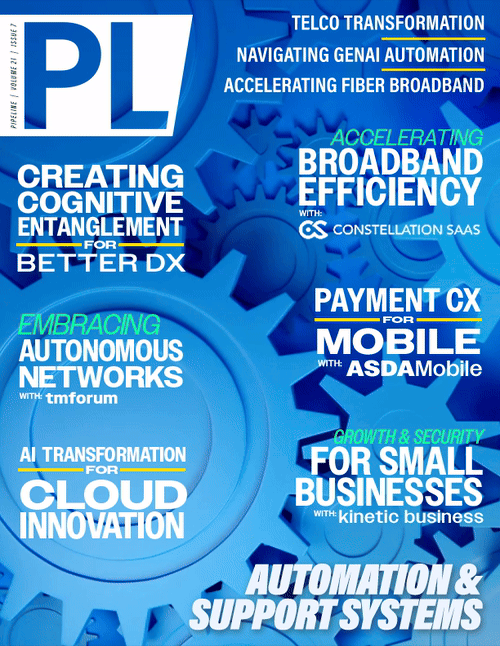Embracing Autonomous Networks
The Road to Level 4 Autonomy
TM Forum research has identified cross-domain integration complexity as a significant barrier, requiring standardized, open APIs and unified data models to enable seamless interactions across network domains.
Digital twins represent another powerful application, creating virtual network replicas that operators use to simulate configurations and predict outcomes without risking live operations. This capability boosts planning accuracy, reduces downtime, and ensures reliable performance. Operators leveraging digital twins report significant OPEX savings and improved service reliability.
Proactive customer experience management is also seeing transformative effects. AI-driven networks can detect problems instantly, matching customer experience metrics with network performance data, enabling rapid, autonomous issue resolution. This proactive approach drastically reduces complaint resolution times, enhances satisfaction, and fosters customer loyalty.
Navigating the challenges
Despite clear advantages, achieving Level 4 autonomy is not without hurdles. Integrating autonomous capabilities into legacy, multi-vendor, and siloed environments is challenging. TM Forum research has identified cross-domain integration complexity as a significant barrier, requiring standardized, open APIs and unified data models to enable seamless interactions across network domains.
Another key challenge is data readiness. Autonomous networks depend on high-quality, accessible data to feed AI models. Many CSPs still grapple with fragmented data architectures and silos. Forward-thinking businesses can address this by modernizing data architectures, consolidating data lakes, adopting real-time analytics, and ensuring robust governance. For example, Orange takes a ‘data democracy’ approach which facilitates cross-functional data sharing, significantly enhancing AI efficacy.
Equally, organizational readiness cannot be overlooked. Adopting autonomous networks requires shifts in workforce skills, moving towards data science, policy management, and AI oversight rather than routine operational tasks. Operators must foster an ‘AI-first culture,’ ensuring that teams trust AI-driven insights and decisions. Aligning automation initiatives directly with customer outcomes, such as Telekom Malaysia’s customer-centric automation strategy, helps motivate teams and overcome internal resistance.
Seizing the Autonomous Advantage
Autonomous
networks are reshaping telecom operations, promising enhancements in service quality, efficiency, and agility. The shift towards Level 4 autonomy is essential to meet future demands, delivering
near-perfect availability, real-time service delivery, substantial OPEX reductions, and new revenue streams through innovative, customized services.
For CTIOs, CTOs, and Chief Network Architects, the mandate is clear: invest now in AI capabilities, modernize data architectures, and proactively engage in collaborative industry standards. Begin targeted domain-specific autonomous projects, build internal expertise, and cultivate organizational acceptance of AI-driven decision-making.
TM Forum is taking a leading role in bringing the industry together to deliver on the promise of Autonomous Networks Level 4. In collaboration with our members, we have developed three industry missions: composable IT & ecosystems, autonomous networks, and AI & data innovation, that will unlock growth for the industry. No mission can be undertaken on its own, and greater autonomy is key to delivering on that growth promise.
Telco’s future is heavily dependent on embracing and mastering autonomous network operations today. The CSPs who successfully navigate the path to Level 4 autonomy will not only meet tomorrow's challenges but actively shape the digital world ahead.
Join TM Forum in Copenhagen June 17-19th for DTW Ignite where you learn more about, and co-create, groundbreaking solutions to network challenges powered by end-to-end autonomous operations, AI-driven automation, and intent-based networking. You’ll also see real-world solutions from CSPs that are already unlocking value from autonomous networks. Find out more and register here: https://dtw.tmforum.org.



















